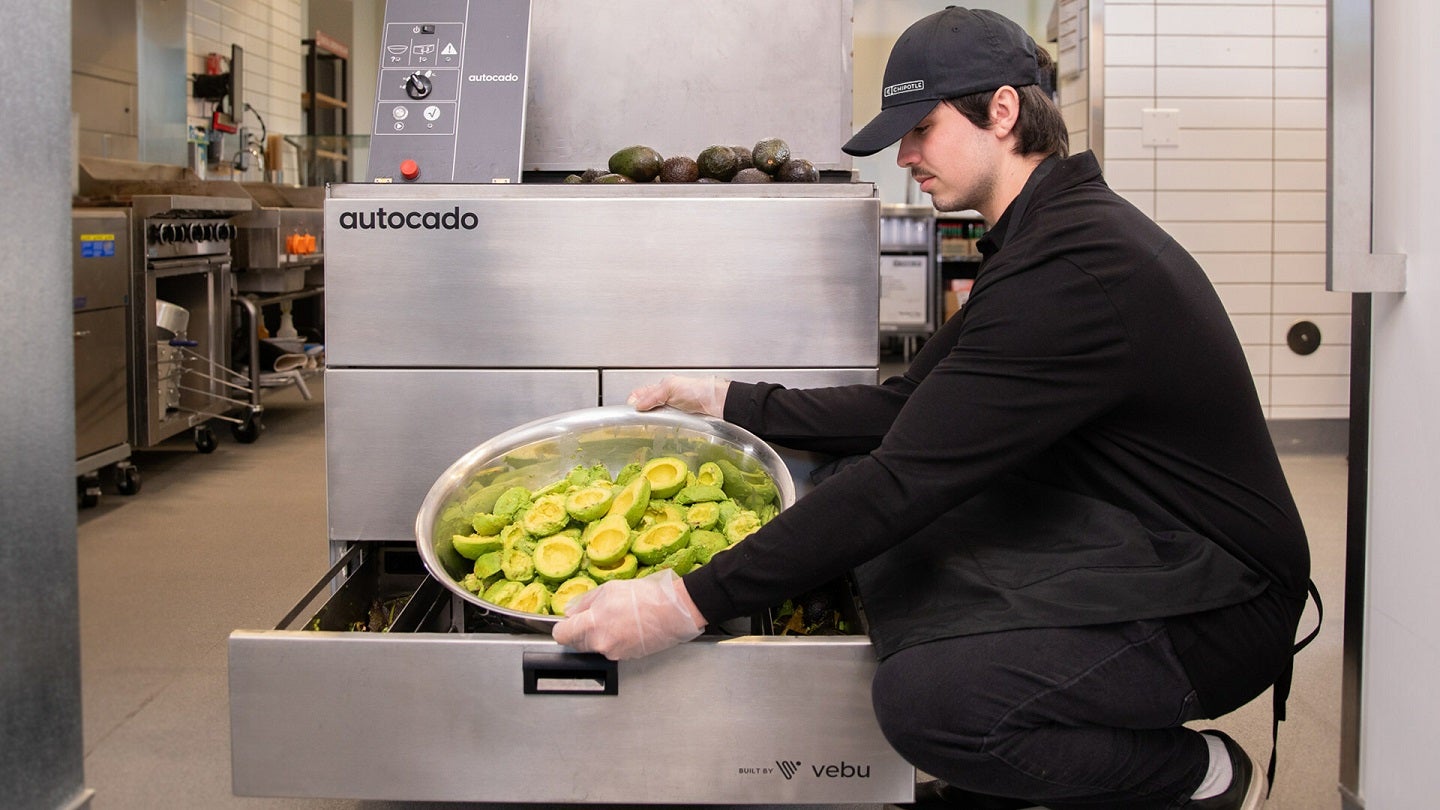
US-based restaurant chain Chipotle Mexican Grill has started testing Autocado, an avocado processing cobot (collaborative robot) prototype, at the Chipotle Cultivate Center in Irvine, California.
Developed in collaboration with Vebu, the new prototype will help the restaurant company prepare its guacamole.

Discover B2B Marketing That Performs
Combine business intelligence and editorial excellence to reach engaged professionals across 36 leading media platforms.
Vebu is a product development company that works with food industry firms to co-create intelligent automation and technology solutions.
Autocado has been designed to cut, core and peel avocados before they are hand-mashed to prepare guacamole.
Chipotle currently has a dedicated team responsible for cutting, coring and scooping avocados. On average, it takes about 50 minutes for the team members to make a single batch of guacamole.
Chipotle chief customer and technology officer Curt Garner said: “We are committed to exploring collaborative robotics to drive efficiencies and ease pain points for our employees.

US Tariffs are shifting - will you react or anticipate?
Don’t let policy changes catch you off guard. Stay proactive with real-time data and expert analysis.
By GlobalData“The intensive labour of cutting, coring and scooping avocados could be relieved with Autocado, but we still maintain the essential culinary experience of hand mashing and hand preparing the guacamole to our exacting standards.”
The Vebu team is also planning to make further technological improvements, which will reduce the preparation time of guacamole by 50%, allowing Chipotle employees to focus on serving guests.
Vebu CEO Buck Jordan said: “Our purpose as a robotic company is to leverage automation technology to give workers more flexibility in their day-to-day work.
“Autocado has the potential to work alongside Chipotle crew members to create the same, delicious guacamole that Chipotle fans love but more efficiently than ever before.”
Through its Cultivate Next venture fund, Chipotle is also making further investments in Vebu to help fuel additional innovation opportunities in the restaurant space.
In April this year, Chipotle said that it is piloting an all-electric restaurant design as part of its effort to cut 50% of its direct and indirect greenhouse gas emissions by the end of this decade.





